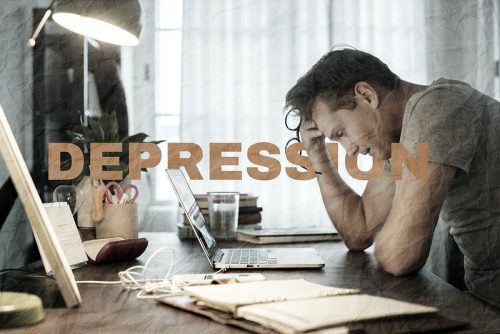
Source: rawpixel.com
When someone in the family is depressed, the entire family is significantly affected. Depression causes irritability, which evokes disagreements among family members, which consequently destroys family dynamics. The negativity spreads among the members and ripples its pessimism in everyone. The self-isolation that breaks relationships and instills generalized feelings of neglect and denial. Ultimately, the whole situation is stressful and burdensome.
On the contrary, the family is a major source of comfort, cure, and love. Family members are crucial to proper acknowledgment and a treatment plan for a common yet debilitating mental health illness such as depression. Families are proven to be effective caregivers, whether they’re unwilling or willing to help. They strongly reinforce the emotional environment that the depressed loved one resides, thus making them agents of healing – or they may not.
Depression And The Family
A Harvard Professor named Nassir Ghaemi argues that it is not proper to diagnose depression without consulting the family. First off, many people, especially those with existing medical conditions and within both ends of the age spectrum, do not often acknowledge that they are depressed. They may also point these symptoms to other factors, which is why the insight of family members is truly beneficial. But ultimately, Ghaemi says it is significantly important for making prescriptions, as one has to know whether the type of depression is bipolar or unipolar. According to studies, half of the patients diagnosed with depression have no idea whether they are manic or depressive. It is the family members that recognize these symptoms initially.
There is also a need for continuous diagnosis. One depressive episode does not eliminate the possibility that a manic episode will develop as well, particularly those below 30 years old. The typical onset of bipolar disorder is a depressive episode, where the average age is 19. However, an initial manic episode occurs only after 25 generally. There is a greater risk for younger individuals to be diagnosed with a bipolar disorder.

Source: rawpixel.com
Standard antidepressants can hasten mania, and in these cases, it is crucial to inform patients and their family members about the manic symptoms. Professor Ghaemi stresses the importance of family intervention in the early detection and treatment of manic depression. When possible, patients come for a primary evaluation, he suggests that they bring their family members with them. He then asks them to call any time when they notice developing symptoms from their loved ones. Additionally, the approach of the family towards the patient’s medications can also make a difference in compliance and continuing illness. If the members are not agreeable to the prescription medications and the treatment plan, they are taught to deal with that. But ideally, the entire family should support the general treatment, especially playing a role in reminding the patient to take their medicines regularly.
The Concept Of Expressed Emotion
Undoubtedly, there is a vital need for the treatment of any type of depression. A reputable psychologist, David Miklowitz, created a treatment that focuses on the family, on the principle that family dynamics tremendously impact mood disorders. He explained the concept of expressed emotion, which he describes as a measure of personalities expressed by a caregiver concerning a mentally ill individual. This consists of hostility, emotional over-involvement, and criticism. All these create an environment of high expressed emotion, and this increases the incidence of relapse threefold.
Expressed emotion typically brings about a conflict between a family member and the patient, which affects the patient biologically. He may become hyperaroused, as seen often in imaging studies. The fear centers of the brain are stimulated when patients catch a family member talking about them judgingly.
Family-Focused Therapy
This type of therapy is one that Miklowitz devised specifically for families with bipolar patients, although it is currently also being used by unipolar patients. It is used to decreased expressed emotion by providing families about the whole gamut of depression and teaching them skills in problem-solving, effective communication, and increasing self-esteem. In the 90s, there have been studies demonstrating a significant reduction in the relapse rate of patients whose medical professionals were integrating family-focused therapy in their overall treatment programs. This, which Miklowitz refers to as psychoeducation, must be considered part of every treatment, especially those with intermittent mental illnesses such as depression.

Source: rawpixel.com
Yes, families play a vital role in helping a depressive patient go through life with fewer stress factors and triggers that might make him more miserable than ever. Families do have a tremendous impact on depression. This is why mental health professionals agree that the family should always be involved in the diagnosis and treatment plan of depressive and manic patients. In a way, they ‘make or break’ the prognosis of a family member suffering from depression.